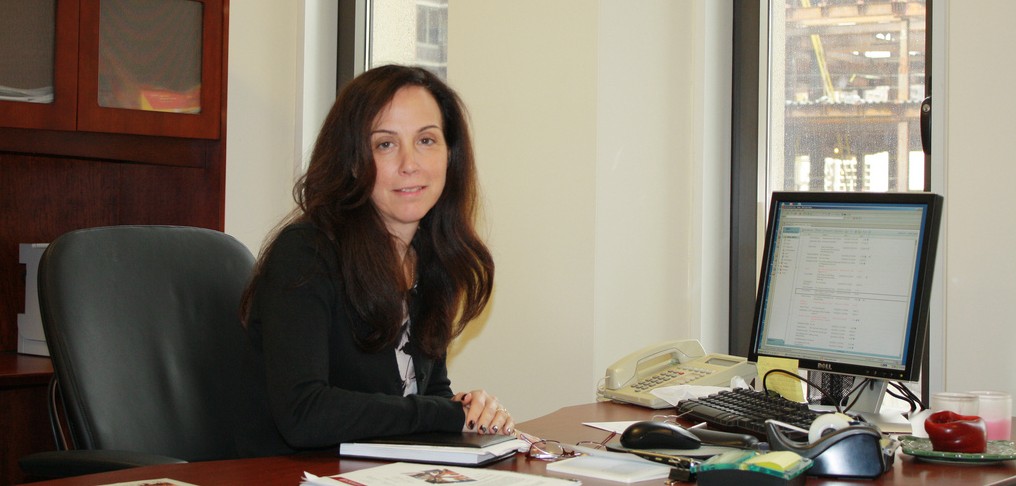Business School Dean Talks Ethics
March 28, 2012

On March 14, The New York Times published a headline-grabbing resignation letter from a former Goldman Sachs executive that bashed his firm’s culture as “toxic and destructive.” According to Greg Smith’s letter, the financial giant’s leaders had strayed far from their duty to look out for clients’ best interests. Smith’s letter spawned stories of decreased interest in Wall Street positions from college students due to the perceptions of firms like Goldman Sachs’ unethical atmosphere.
The Observer recently sat down with Donna Rapaccioli, dean of Fordham’s Gabelli School of Business, to discuss the ethics of business school.
Observer: How does the Business School work the topic of ethics into the classes of Gabelli students?
Donna Rapaccioli: We do it in several ways. It is infused in every class. Every business class has an ethical element to it: either a case or an assignment. But in addition to that, they take philosophical ethics and then they take business ethics, and if you are an accounting or finance major, there is also ethics in financial reporting. So embedded in the curriculum are three ethics courses, as well as ethics being infused in each of the core classes.
One of our learning goals is competency and awareness in ethical decision-making. So each of the core business courses has to explain how they address this issue. The other thing that we just started doing this year is something called the Dean’s Essay, which is a broad question. In the fall there was a series of three of them: the first was “What is the purpose of the firm?” the second was “What is the role of the CEO?” and the third was “What is the purpose of the board of directors?”… we want students to think about questions from different perspectives, and hopefully this will help them make better decisions. This term, the first essay was about Occupy Wall Street, and it was “How can a business student use activism in a positive way?” I haven’t read any of those yet. The best six in each category get to have lunch with me.
Observer: In light of the recent business scandals, have you reconsidered the way you teach ethics to the students?
D.R.: Well yes. The whole idea behind the Deans Essays is new. The social entrepreneurship, the social enterprise focus, that all came after this. It caused a lot of soul searching among the faculty and the choices we were making of who we were inviting on campus.
Observer: Have you noticed a tension between teaching students how to make good business decisions that will benefit their investors and the Jesuit tenets of our school?
D.R.: I think it is all about the time frame. What we are trying to make the students think about is: if you look at things in the long run, the decision that aligns with Jesuit values is the decision that will benefit stakeholders so you have to move away from a short-term focus.
You have to move away from a shareholder focus and broaden your view to a stakeholder focus. If you look at the stakeholders and the long-term, it absolutely aligns. We’re really trying to bring to top of mind a different way of looking at business and business decisions.
There are a number of professors who are doing different approaches to business. There’s a professor Michael Pirson, and his whole approach is about humanistic business. We try to bring speakers on campus that highlight what happens when you make an unethical decision.
It’s not one thing that we’re doing. We’re trying to push this from different angles. The other thing that really drives deeper decision-making is to experience what is happening in the world—a real dedication to service. Because if you help a social enterprise or a business that is just trying to get off the ground, you’ll see how unethical decisions can really hurt.
Observer: Have you noticed decreased interest from students in places like Goldman Sachs that have been found to have unethical environments?
D.R.: What I have seen is a renewed interest in small business and launching your career. [On March 21] we had 70 small firms on campus and there were at least 100 students—we called it the Small Business Connector—whereas five years ago there wouldn’t have been very many students that would have been interested in that. We had a not-for-profit event and it was also very well subscribed.
We had four students that got front office positions at Goldman Sachs and they were really happy, so I still think there is some of that interest. We were just there the other night; Fordham had an event there. I also see there is a great interest in launching a career in a much smaller firm and starting your own business.
Entrepreneurship at this school is exploding. It’s incredible how many students come to my office with a business plan for a cookie company, data mining websites, T-shirts and fantasy sports classes. There is a lot more diversity in where students want to begin their careers.













